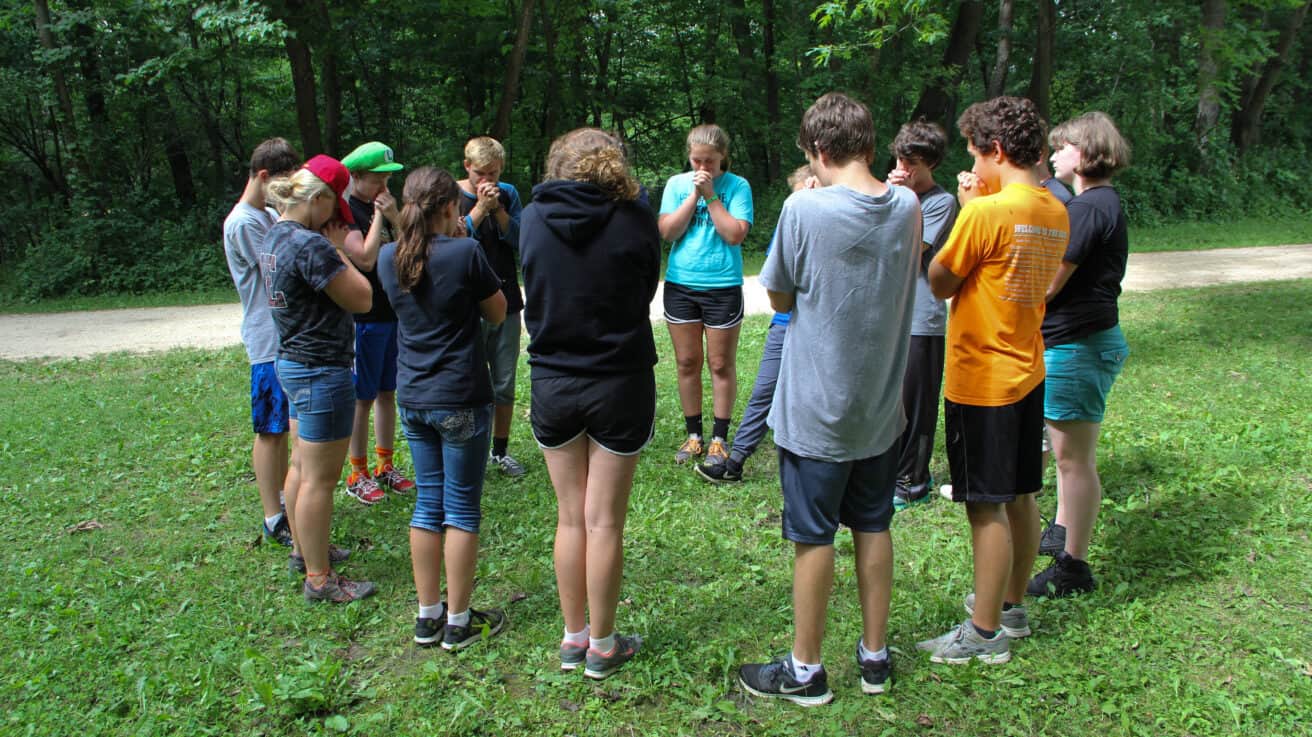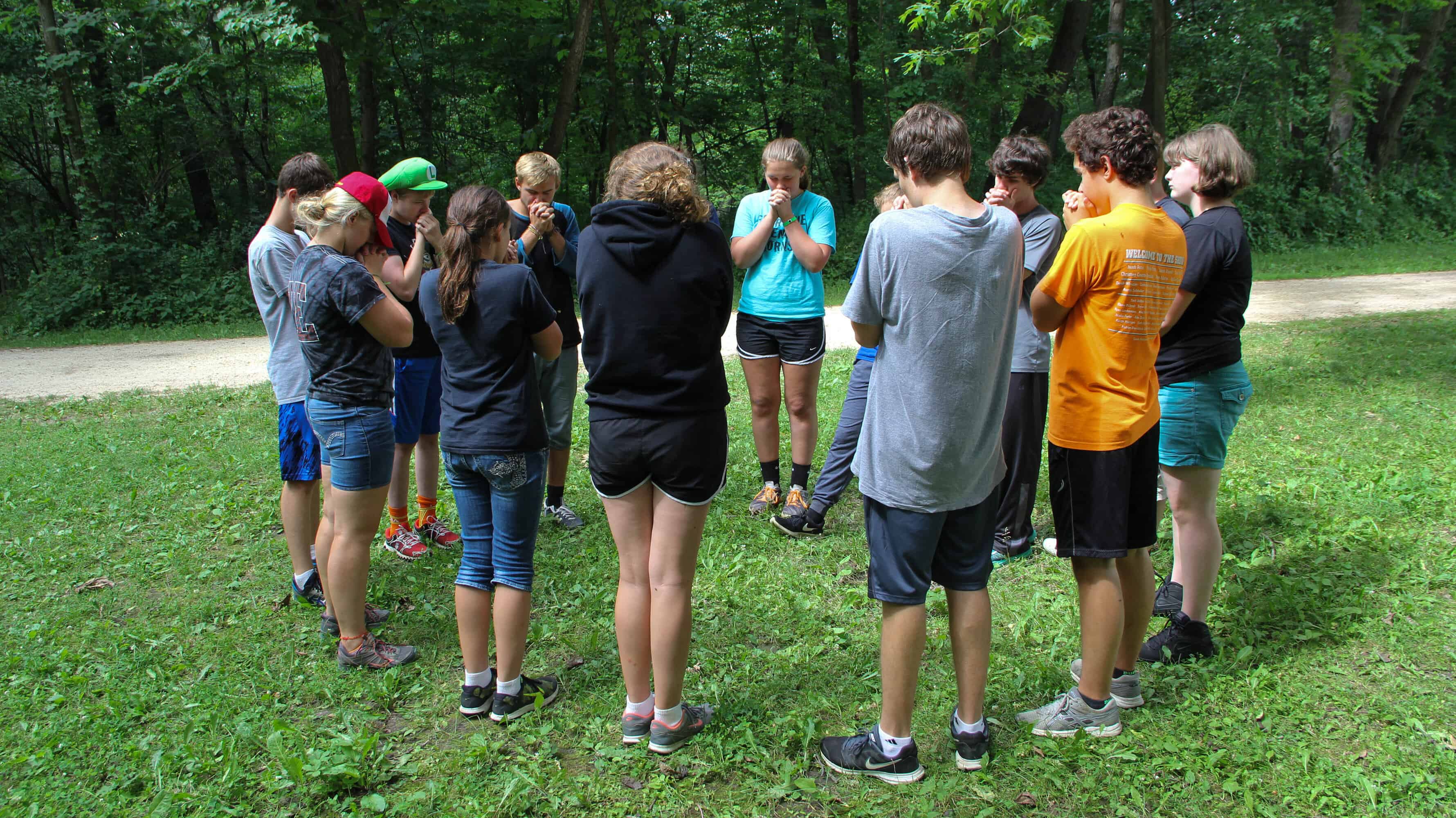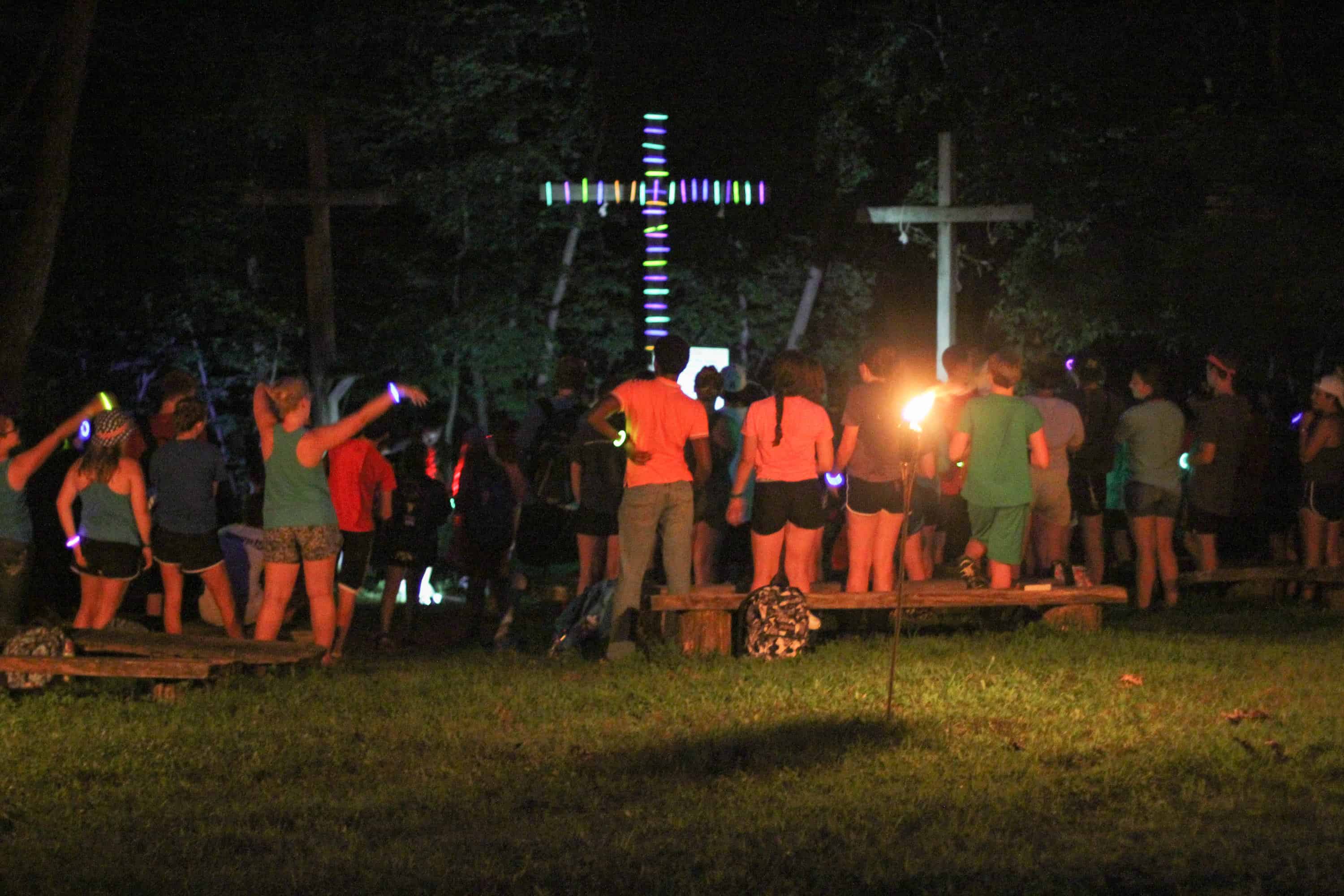
Summer camp has sadly come to a close. In a week or two, everyone will be back to school, back to sports and music and dance and all of the regularly scheduled activities that come with the school year. The excitement and anticipation of summer is past, and it is now a time of transition-of adjusting to school hours and bus routes, wearing jackets as the weather cools, and spending more and more time indoors.
In this time of transition, it can be easy to let the memories of summer fade or fall behind. However, we wanted to bring some of those memories back to the forefronts of the minds of campers and parents. Specifically, we wanted to remind you of what you learned during your week at Summer Camp, because even though you have long unpacked your camp gear, the lessons and discussions you shared during Bible study at camp are still vitally important to your every day life.

This summer, our Bible study theme was “We, the Church.” We talked, on the first day, about what it means to be the Church. We read Acts 2:42-47 and learned about the Early Church, the very first church community described in the Bible. We learned that the Bible called the members of this community “believers.” We talked about how, in order to be part of God’s Church, we have to believe in Jesus. We examined the different things the believers did (listening to teaching, praying, breaking bread, giving to the poor, praising God) and talked about how we have seen those same things in our church communities back home. We talked about how the Church was really a group of people, not a building.
On the second day, we started to look at the purpose of the Church. Why did God make the Church? We identified worship as a chief purpose. We talked about how worship can be more than just singing songs. Older campers talked about different worship temperaments (Naturalists, Sensates, Traditionalists, Activists, Caregivers, Enthusiasts, Contemplatives, Ascetics, and Intellectuals). We broke down the word worship to “worth-ship” and discovered that when we worship, we express that something has worth or value to us.

On the third day, we learned that a second purpose of the Church was to be a source of support to its members. We read the story of Moses and the Israelites. Specifically, we focused on Exodus 17:8-13, where Moses’s friends help him hold his arms up when he is too weak and tired. We talked about how burdens aren’t always something we can see- they might be feelings like hurt, anger, or sadness. We talked about what it means to support someone else, and what it feels like to have someone come alongside you and help you carry your burden. We saw how important it was for the Church to support its members so that all feel welcomed, included, and safe.
On the fourth day, we learned that a purpose of the Church is to stand up for Christ. We read the story of Shadrach, Meshach, and Abednego in Daniel 3 and how these three boys stood up for their faith. We identified ways in our own life where we might stand up for our faith. We talked about how comforting it was to have others who would stand up with you.
On the fifth day, we learned that a purpose of the Church is to do justice. We talked about how justice means having a respect for the value of things around us. Doing justice means working to fix the things that are wrong with the world, where people or things are not respected or valued as they should be. We discussed issues of injustice that we would like to see righted. We talked about what message we send the world when we, as the Church, fight to do justice.
Now that everyone is home and school is starting, how can you continue to learn and explore the idea of “We, the Church?” We have some suggestions for things to do together as a family to continue studying and learning together.
- If your family does not already attend a church, consider exploring and finding a church that is right for you, and making an effort to attend regularly. If you do attend church regularly, choose one or two weekends (or more, if you wish) to visit other kinds of churches unlike your own. Talk about the experience together. What kinds of community did you experience? What was similar to your church? What was different? How many different expressions of worship did you identify? What were ways you saw them supporting their members? Standing up? Doing justice? Ask the same questions about your own church.
- Explore ways you could get involved in a worship service at your church. Think about what kinds of gifts and talents you have. Do you like to sing? Use computers? Teach? Read Scripture? Commit to serving and contributing to your church’s worship service.
- Think of people in your church community who may need extra support or love. Brainstorm ways that you, as a family, can show that you support them. Bring them meals, write notes of encouragement, make a blanket, offer prayer, babysit…do whatever you can to ease the burden of someone else.
- Adopt a missionary as a family. Ask your church about missionaries that they may support. Chose one or two that your family can specifically pray for, write letters to, send gifts, and maybe even contribute to financially. Talk about how that missionary is standing up for their faith. Let them know that you are standing with them in prayer and support. Talk about how you can personally stand up and share about your faith in your own life.
- Choose a cause that your family can support or fight for. Volunteer at a soup kitchen. Write letters to elected officials. Choose an area of injustice in the world and find ways to get involved in righting it.
We would love to hear about other ways that you have put the “We, the Church” study into action. Send your stories to stacie@campwyoming.net.
